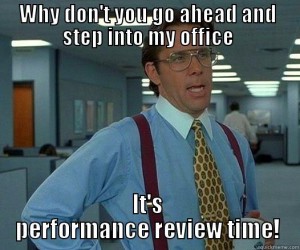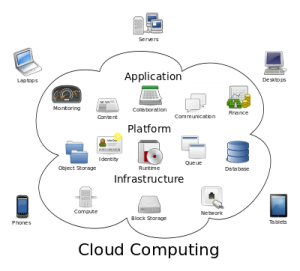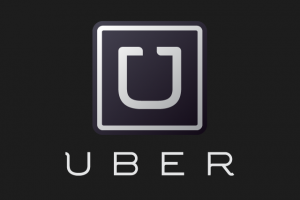Uncategorized
Deloitte Replacing Performance Evaluations With Four Simple Questions
According to The Washing Post, “Research shown to be ineffective, unreliable and unsatisfactory for seemingly everyone involved. They consume way too much time, leave most workers deflated and feel increasingly out of step with reality.”
Deloitte has redesigned its whole performance management plan and how it will evaluate its employees. Deloitte’s is getting rid of nonsensical attempts to build similar goals for everyone in the organization. The company also noticed they were spending two million hours each year assigning numerical ratings to each employee so they got rid of that too.
Overall, Deloitte is replacing its old performance system with four engaging questions they are asking managers to look at instead. Washing Post stated, “At the end of every project, or once a quarter if employees have long-term assignments, managers would answer four simple questions — and only four. The first two are answered on a five-point scale, from “strongly agree” to “strongly disagree;” the second two have yes or no options:”
1. Given what I know of this person’s performance, and if it were my money, I would award this person the highest possible compensation increase and bonus.
2. Given what I know of this person’s performance, I would always want him or her on my team.
3. This person is at risk for low performance.
4. This person is ready for promotion today.
This new performance allows how to develop employees in the future based on their performance.
Based on this article/post, do you think organizations should start following this new approach? Would you prefer to be evaluated on these questions or have a standard performance evaluation review? Why?
http://www.washingtonpost.com/blogs/on-leadership/wp/2015/03/17/deloitte-ditches-performance-rankings-and-instead-will-ask-four-simple-questions/
Roger Martin Coined Integrative Thinking
http://rogerlmartin.com/thought-pillars/integrative-thinking
Roger Martin coined the word “integrative thinking” when he observed in his multiyear study of exceptional successful leaders. He found a consistent pattern to the leaders thinking approach when they were faced with challenging choices. In 2007, Roger published a book called The Opposable Mind: How Successful Leaders Win Through Integrative Thinking. The book describes the components of Integrative Thinking and provides a guide for those who want to manage their own Integrative Thinking capacity. Roger states, “Many people assume that Integrative Thinking is a skill which one must be born to demonstrate. This is definitively not the case! It is clear from this teaching experience that anyone who is willing to work at Integrative Thinking can develop the thinking pattern exhibited by the highly successful leaders that I studied.” I agree with Rogers statement because not every successful leader is born with every skill set to make them successful.
Do you think integrative thinking is an easy skill to learn? How much time do you think you need to put into learning the skill set of an integrative thinker?
We can change the way we think!
Summary of “How Successful People Think”
Integrative thinking is in some way or another an art form, but also is something that can be learned, practiced, and built upon throughout a life time. I believe in order to become an integrative thinker we first need to learn how to think better. “How Successful People Think” by John C Maxwell is a book that addresses 11 skills of a good thinker possess, and how to adopt these skills. These 11 skills are:
1)Big picture thinking
2)Focused thinking
3)Creative thinking
4)Realistic thinking
5)Strategic thinking
6)Possibility thinking
7)Reflective thinking
8)Popular thinking
9)Shared thinking
10)Unselfish thinking
11)Bottom-line thinking
Maxwell’s quote “If you embrace unpopular thinking and make decisions based upon what works best and what is right rather than what is commonly accepted, know this: in your early years you won’t be as wrong as people think you are. In your later years, you won’t be as right as people think you are. And through all the years, you will be better than you thought you could be.”
Maxwell says we can develop these skills during ordinary daily routines. Does anyone have any ideas how they would practice one of the 11 skills in their daily life?
How to Get the Job When You Don’t Have the Experience
“The Permission Paradox” – You can’t get the job without the experience but you can’t get the experience without the job – is one of the great career Catch-22s.
I came across this article on Linkedin, while I was scrolling for jobs. Almost every job I came across required 3-5 years of professional experience. How can I have experience if I cant get a first job? Well, James Citrin, author of The Career Playbook, tells you how in just 5 steps. Reading this article gave me confidence that not all requirements are so black and white.
James gives a few pointers that stuck with me after reading:
1. Be willing to start at the bottom. Just because we have a degree, doesn’t mean we should automatically get a high paid salary in a fortune 500 company. Sometimes you need to work up the ladder.
2. Re-imagine your experience. Have you ever planned a spring break with your friends? That counts as some type of “project managing” right? It was your responsibility to collect money, work with budgets, and research unknown variables of the trip.
To those of you who are still searching for jobs or have already gotten an offer, have you used creative stories like these in interviews to fill an under qualified job requirement?
The Five Most Disruptive Innovations At CES 2015
http://www.forbes.com/sites/bigbangdisruption/2015/01/09/the-five-most-disruptive-innovations-at-ces-2015/
This year was the Consumer Electronics Show 2015 (CES) filled with big bang disruptors. There were disruptors from incumbents and start-ups with the likelihood to cause big changes. The five most disruptive innovations were:
1) Transportation – Autonomous Vehicles
2) Health and Fitness – The Quantified Self
3) Manufacturing – 3D Printing and Robotics
4) The Internet of Things
5) Augmented Reality
I found this article very interesting because the top five most disruptive innovations at the CES were covered in our class through our case analysis. Two of the five disruptive innovations I found amusing were the autonomous vehicle and 3D printing. I would have never thought in a million years we would have a self-driving car. When I listened to the presentation in class I was very fascinated with the information. My case analysis was on 3D printing which I also thought was interesting because I never knew much about the product. After reading this article, I learned a lot more about 3D printing and the new features. If technology is this advanced in 2015, I can only imagine how advanced technology will be 30 years from now.
The disruptive innovations at the CES fall in the “early market experiment stage of big bang disruptions.” According to Forbes, “Some–perhaps most of them–will never make it to mainstream success. But even those that don’t succeed send a strong signal to incumbents of imminent disruption when some entrepreneur hits on the right combination of new technologies and business models.”
What are your thoughts on this years Consumer Electronic Show? Do you think the innovations listed in this article and what we discussed in class will make it to mainstream success? Why or why not?
Cloud Computing Is The Future
Last week we briefly talked about Amazon Web Services (AWS) which is a collection of remote computing services that make up a cloud computing platform by Amazon.com. I came across an article that talks about cloud computing being the future because most people and business use cloud computing. Cloud computing is cheap, fast, and easy to maintain. As technology is evolving and becoming a lot more popular, there may be security risks associated with cloud computing. There was a survey done that showed 80% of people were skeptical about cloud computing due to security concerns. According to the article “Amazon Web Services is a prominent cloud computing provider in the industry. The department is the fastest growing department of Amazon. However, in Oct. 2012, services failed for a while.” As cloud computing becomes more and more popular, experts are going to have to address security issues.
Do you think cloud computing can be high risk when it comes to security? Why or why not? Do you think people and business will still use cloud computing if security concerns increase? Why?
http://www.techtimes.com/articles/8449/20140615/cloud-computing-is-the-future-but-not-if-security-problems-persist.htm
Uber’s Business Model Could Change Your Work
On Thursday we briefly talked about Uber’s business model. I find Uber an interesting and smart start up that is becoming very popular. I came across an article that talks about the “Uberization of work may soon be coming to your chosen profession.” a range of companies are trying follow Uber’s business model in order fields from grocery shopping, legal services, to even medicine. The benefit of Uberization is that technology can make your work life more flexible because it will allow you to fit multiple jobs around your schedule. An economist at the University of California stated, “this on-demand economy means a work life that is unpredictable, doesn’t pay very well and is terribly insecure.” Most people would rather have good, well-paying, regular jobs. Uber is a growing company and there are always new opportunities for employment.
What do you think about Uber’s business model? Do you think other fields that follow this business model will be successful? Would you want to work for a company like Uber? Why or why not?
http://www.nytimes.com/2015/01/29/technology/personaltech/uber-a-rising-business-model.html
So you have a great tech idea, where to start?
The convention has always been you get a new idea, you write a proposal, request funding, assemble a team, build it, perfection it and implement it then hope that it would work. Or if you’re an entrepreneur, you write your business plan, you seek funding build your idea, launch it and hope that it would work.
The problem with this approach is that no amount of surveys or data analytics can predict that your audience will actually use your new product; so you deplete a considerable amount of resources then hope that the end it didn’t all go to waste.
The cure for this problem is the new lean methodology approach. The concept is borrowed from manufacturing and applied to tech. It was made famous by Eric Ries in his book, The Lean Startup.
The ida is to seek validation before investing or building anything significant. The following article does a great job introducing the methodology.
This is related to what we discussed in class about the risk that comes with investing in big IT projects. If big organizations learn from startups and find a way to accurately test the validity of their ventures, they would reduce their risks to a more reasonable level.
Do you guys think that this method would be effective?
Is there any industries where this method wouldn’t apply?
Is It a Good Business Model to Pay People to Use Less Electricity?
The Internet of Anything: The System That Pays You to Use Electricity

I found this article about Ohmconnect, a sustainable energy management company. What’s interesting about this company is their business model: they will pay you to use less electricity. Ohmconnect partners up with ISO, the organization that manages California’s electrical grid, and gets user authorization to access the user’s home smart meter and any supported internet-connected devices. It can then track the user’s energy consumption and alert the user of energy spikes, asking you to cut back on power consumption. Based on the user’s baseline energy consumption, as set by the ISO, Ohmconnect can determine the reduced electricity consumption and the amount of money you will be paid. The money saved is split between the energy companies, Ohmconnect, and the user.
This is a unique business model that benefits all parties: the user gets paid for less energy consumption, energy companies save money, Ohmconnect makes money, and the carbon footprint is reduced. With this in mind, can you guys think of any other companies or industries that would benefit from a business model like this? Do you think that there is a better business model that Ohmconnect could be using instead? I personally think this is an effective business model for Ohmconnect to use. I would think that cutting back on your electric bill would be enough to reduce energy consumption, but getting paid to do so would certainly be a good incentive for most people to reduce their consumption. What do you guys think?
Facebook Builds Platform For Companies To Share Cybersecurity Threat data
Facebook launched “ThreatExchange” which is an Application Programming Interface (API) that allows companies to share information with each other about cyber attacks. A few companies including Facebook were demanding to stop a bonnet that was abusing their services to send spam. A manager of the Threat Infrastructure team at Facebook stated, “We quickly learned that sharing with one another was key to beating the botnet because parts of it were hosted on our respective services and none of us had the complete picture.” ThreatExchange is built on Facebook’s infrastructure and the information includes domain names, malware samples, and other indicators of compromise. The platform allows companies to share certain information that share similar issues. The goal of this platform is for organizations to learn from each other and make their systems safer. “That’s the beauty of working together on security. When one company gets stronger, so do the rest of us.”
Do you think ThreatExchange is a good way for companies to share their information regarding systems and hacking? Do you think only social media sites are going to use this platform? Or do you think other industries will also use this platform? Why?
http://www.cio.com/article/2883034/facebook-builds-platform-for-companies-to-share-cybersecurity-threat-data.html









